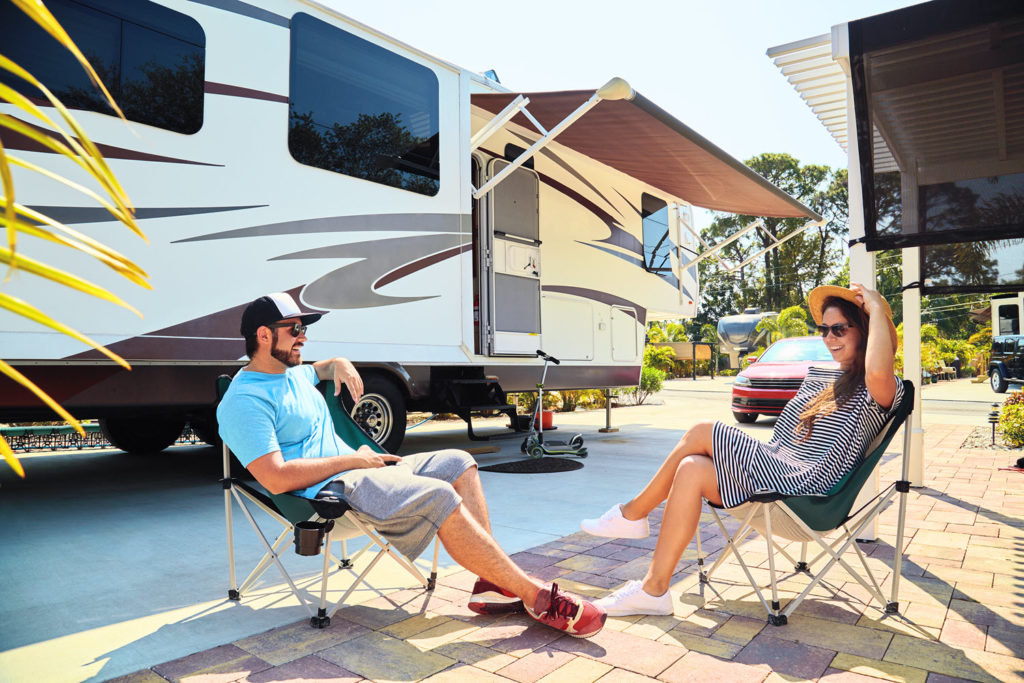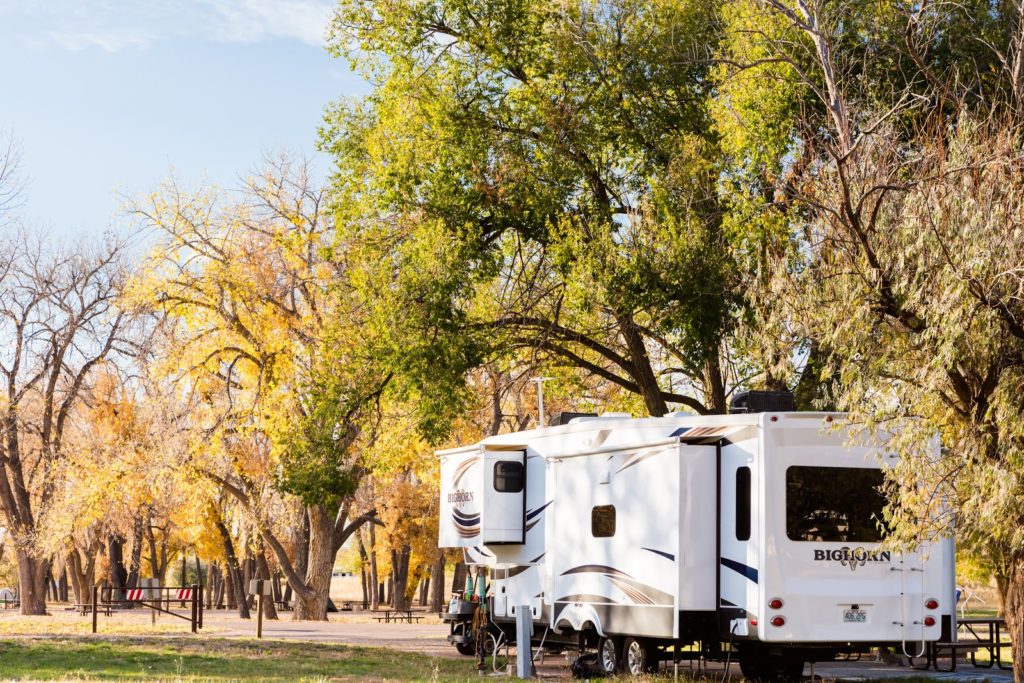If you’re in the market to buy a used travel trailer, there are a few things you should know before you sign on the dotted line. Here is a list of dos and don’ts that will set you up to drive happily into the sunset for years to come!
DO Decide What Is Non-Negotiable
There are so many wonderful options available in many different types and sizes of motorhomes. In fact, pretty much anything you desire can be found inside one of these apartments-on-wheels. The only thing is, you won’t be able to get everything.
It can pay off to be a little flexible in some of your wants while remaining true to what you actually need. Your non-negotiables should cover anything that makes the investment worth it and the lifestyle commitment a joy.
For example, if you’re more of a “glamper” then you don’t want to compromise on the cleanliness of a particular used motorhome. If you imagine yourself staying closer to nature and camping in more intimate sites, don’t compromise on choosing a pull-behind tent trailer. If you have a big family or want to bring guests along, don’t compromise on the number of people your vehicle can accommodate.
Other things you might consider essential could be a dishwasher, the ability to tow, or two bathrooms. It’s all up to you, but realize that the more “essentials” you have on your list, the harder it will be to find exactly what you want.
Besides, since you are in it for the long haul, you can always customize or upgrade down the road. It’s most important to get a solid-running vehicle now and add a skirt, awning, or high-quality speaker system later.
DON’T Overbuy
There are a hundred ways you can overbuy, overspend, or overextend yourself when standing in front of a potential pre-owned travel trailer. You may get excited and then end up with foggy vision about the realities of your choice.
Here are a few questions to ask yourself:
- Do I have a truck big enough to pull a fifth wheel?
- Do I really need that extra bed?
- Are the places I envision myself traveling to able to accommodate a Class A?
- Can I safely drive such a large unit?
- Will my budget allow for a newer model?
Your honest answers may bring you clearer vision so you end up with a purchase you won’t regret in the end.
DO a Thorough Inspection
You absolutely don’t want to end up with a lemon. Things to look out for are:
- Leaks: Look for brown spots on the ceiling, or bowing. Check around the windows and doors. Check the corners of the carpeting near appliances and the bathroom.
- Mold: You will most likely see any mold in the corners or caulking of the roof or laminate floors. Make sure to inspect all seams and creases and inside the cabinets and appliances. Also check the caulk in the bathroom.
- Rot: Jump up and down in the kitchen and bathroom and very carefully walk on top of the roof. The floors and roof should feel stable and sturdy. Push on the exterior walls. Inspect around the cutaway.
- Rust: No matter what, rust is common and not necessarily a big problem. However, a rusted frame is a big deal and a costly replacement, so be sure to check the frame.
- Sun Damage: If the roof has cracks, bubbles, or splitting paint, it may be irreparable.
DON’T Be Put Off By Minor Issues
Although you should be mindful of any issues found in a used camper, you don’t necessarily need to be put off by the minor ones.
If your budget only allows for a fixer-upper model, that’s okay! It’s a big trend these days to makeover a dud and make it your own. After all, ugly can be replaced and minor repairs can be made. You may feel fine letting things slide if the cost of fixing it up still comes out to be cheaper than buying a better one to begin with.
DO Put Your Finances In Order First
Unless you’re paying all cash up front, you’ll need to take a close look at your budget and figure out how much you can spend each month. Remember, there are quite a few costs to be considered, on top of your loan payment. Depending on the type of recreational vehicle you buy (folding tent trailer, Class C, Class A, etc.), you will have varying purchase and use costs that may include:
- Parking/storage fees
- Campsite fees
- Extra gas
- Utilities
- Maintenance and repairs
After your budget is set, get approved for a loan if you plan to finance your motorhome purchase. Doing this before you start shopping will make the purchasing process much easier and you’ll be able to get on the road sooner.
For help getting your RV financing in order, contact Southeast Financial today.



